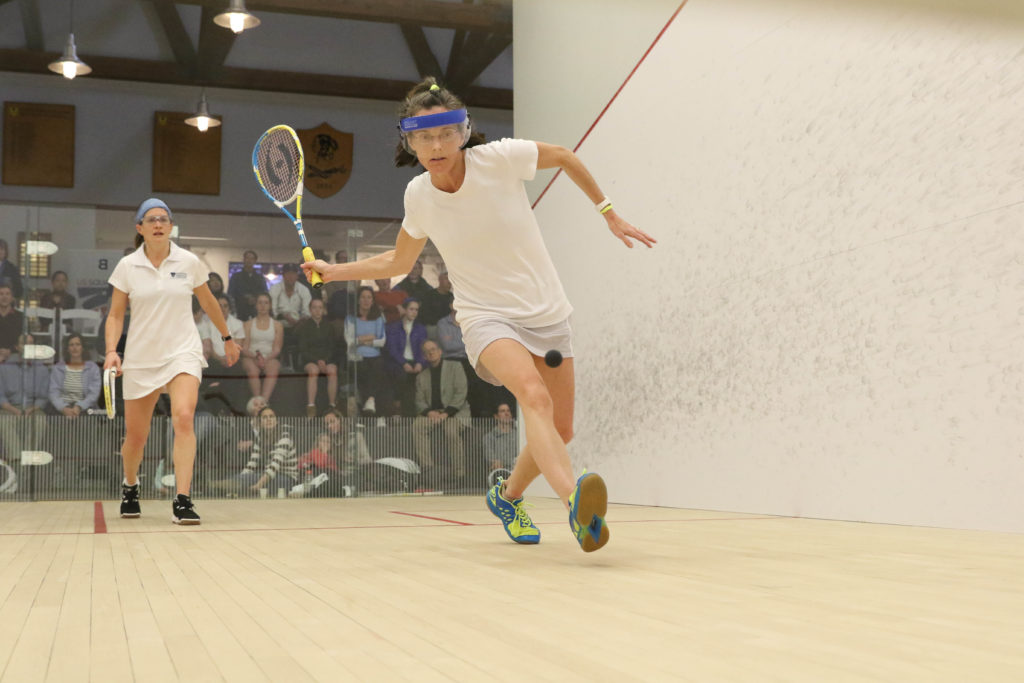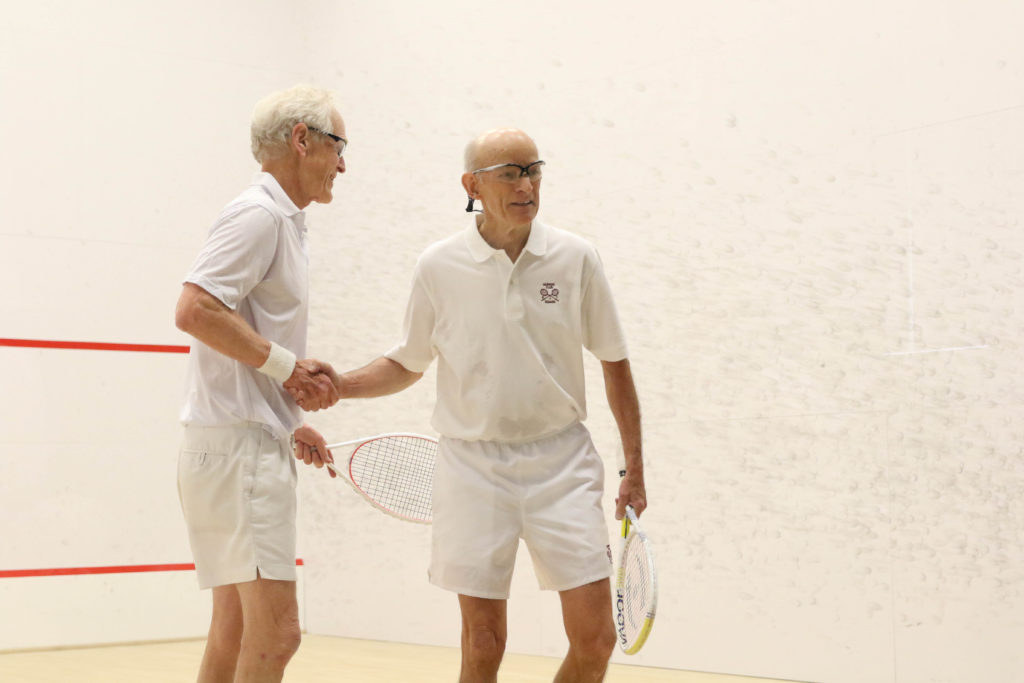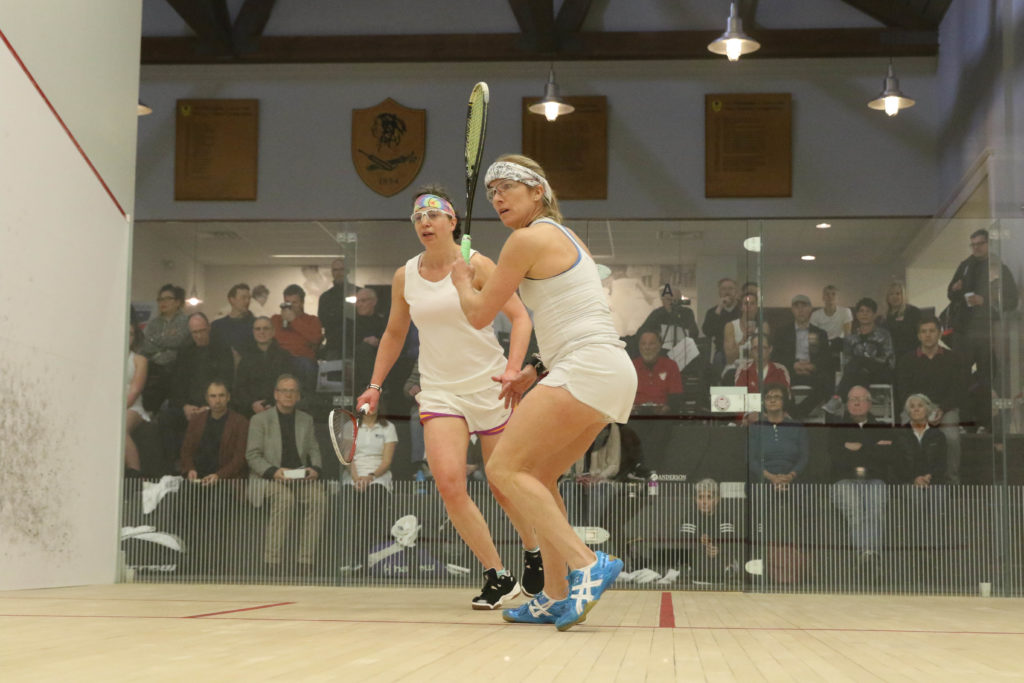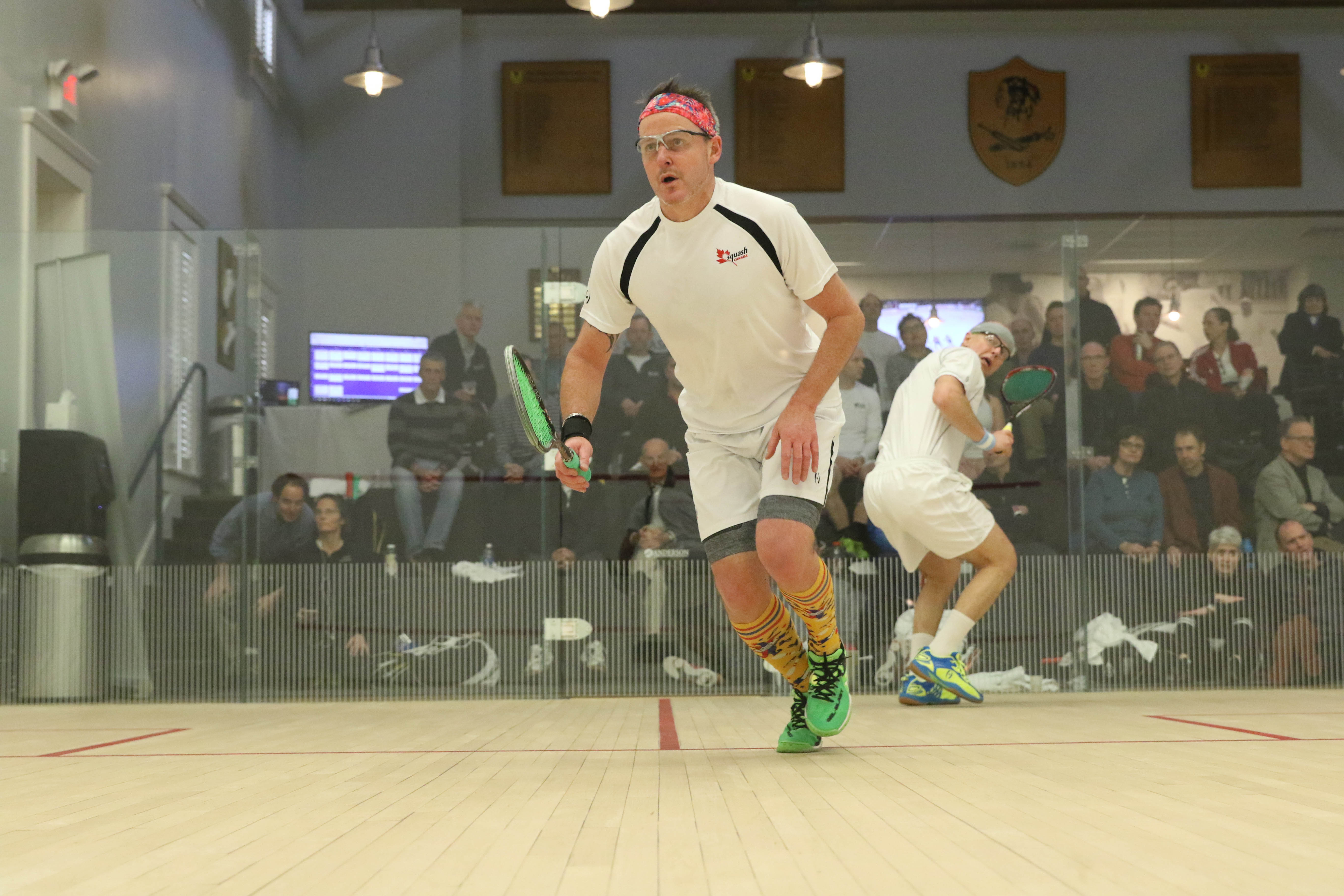
By James Zug
After three years in Charlottesville, the National Singles returned to Philadelphia for a large, exciting and record-extending tournament. The 106th annual championships were hosted by Philadelphia Cricket Club (PCC), with many matches also being played at Springside Chestnut Hill Academy down the street. PCC was also a host site for the national platform tennis tournament, so there were a lot of warm faces and warming hands and toes around the PCC dining and bar area all weekend.

win over Lissa Kenney in the women’s 40+.
The highlight of the National Singles was certainly the surprising S.L. Green men’s open draw and it was a regret that for the second year in a row a major pro tournament (this time the inaugural Ciudad de Floridablanca in Colombia) prevented the women’s open draw from matching its brilliance side-by-side. But masters draws have been a part of the National Singles for so long—since 1935 for the men and 1949 for the women—that the spotlight seamlessly shifted to the fourteen age-group divisions.

Six of the winners were repeat champions from last year. They included Carole Grunberg who brought home her fifth career age-group title at the National Singles in the women’s 60+, as did Don Sheer who didn’t lose a game in his romp to the men’s 65+; Gerry Poulton who earned his fifth in the men’s 70+; Steve Wren, who survived a five-gamer against Anders Wahlstedt in the finals of the men’s 50+ to earn his sixth; Richard Millman who got his seventh by overcoming longtime rival Dominic Hughes in the finals of the men’s 55+; Juliana Lilien who took her ninth by topping Julie Kessler in the women’s 50+; Hope Prockop who with her win in the women’s 40+ captured her tenth; and Jay Nelson, the most successful of them all, who extended his record National Singles masters title mark to thirty by defeating Jim Zug, Sr. in the finals of the men’s 75+.

Perhaps the most memorable match at the end of the weekend was the men’s 80+. In the finals of the eleven-man draw, Paul Segal recovered from a 2-0 deficit to win 11-8 in the fifth over Philip Leis. Eighty-five, Leis was sixty-eight years older than the youngest player at the tournament, Andrew Douglas.
Beyond the multi-generational flavor, there was a distinctive geographically diverse hue at the championships. Players from Canada, England and Trinidad & Tobago won titles, and entrants came from more than fifteen U.S. states including often less-heralded in squash like Arizona, Colorado, Kentucky, Maine, Minnesota, Oregon, Rhode Island, South Carolina, Texas and Wisconsin.


